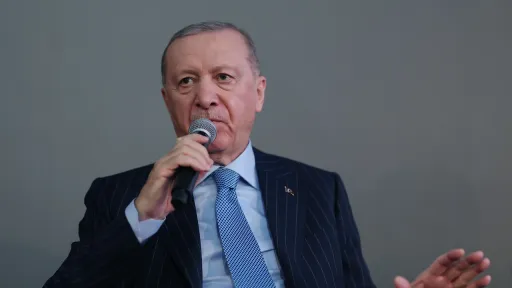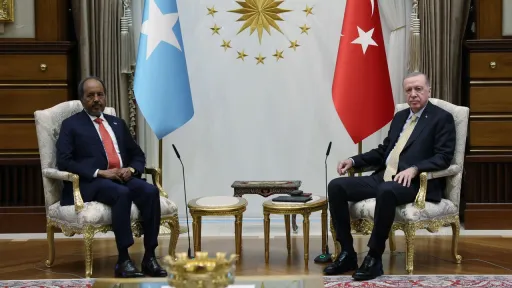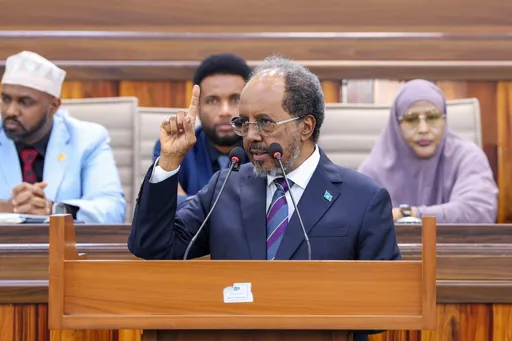An insurgent attack in the Malian capital targeting a military police training camp and airport left more than 70 people dead and 200 wounded, one of the highest tolls suffered by the security forces in recent years.
A security source speaking on condition of anonymity told AFP that 77 people had been killed and 255 wounded in Tuesday's attacks in Bamako.
An authenticated confidential official document put the toll at around 100, naming 81 victims.
Thursday's edition of Le Soir daily reported that the funerals of around 50 military police students would take place that day.
First of its kind in years
Mali's military-led authorities have so far not released a precise death toll from the attacks, claimed by the Al-Qaeda-linked group JNIM.
The operation was the first of its kind in years and dealt a blow to the ruling junta, experts say.
The Malian capital is normally spared the sort of attacks that occur regularly in some parts of the West African country.
The general staff admitted late on Tuesday that "some human lives were lost", notably personnel at the military police centre.
Turn backs on ECOWAS
JNIM claimed that a few dozen of its fighters had killed and wounded "hundreds" from the opposing ranks, including members of the Russian paramilitary group Wagner.
The attack came a day after junta-led Mali, Niger and Burkina Faso marked a year since the creation of their breakaway grouping, the Alliance of Sahel States (AES).
The trio, which have been under military rule following a string of coups since 2020, have broken ties with former colonial ruler France and turned militarily and politically towards other partners including Russia.
The Sahel states in January said they were turning their backs on regional bloc the Economic Community of West African States (ECOWAS).
Broadcast images
Mali has since 2012 been ravaged by different factions affiliated to Al-Qaeda and other insurgent groups.
Volleys of gunfire interspersed with explosions broke out in Bamako at around 5am (0500 GMT) on Tuesday.
JNIM fighters attacked a military police school and stormed part of the nearby airport complex, where a military facility adjoins the civilian one.
The insurgent group broadcast images showing fighters strolling around and firing randomly into the windows of the presidential hangar and destroying aircraft.
Sketchy details
Bamako has not seen such an operation since 2016, when gunmen attacked a hotel housing the former European training mission of the Malian army, with no casualties reported among the mission staff.
The flow of information is restricted under the ruling junta and details on how Tuesday's attack was carried out and its impact are sketchy.
Mali's neighbour Senegal and African Union Commission Chairperson Moussa Faki Mahamat on Thursday condemned the attacks.
The French embassy in Bamako offered its "condolences to the government of Mali."
'Can hit them anywhere'
Jean-Herve Jezequel, Sahel project director at the International Crisis Group, told AFP one possible hypothesis could be that "the insurgents are trying to send a message to the Malian authorities that they can hit them anywhere and therefore that the big cities must also be protected."
He said the aim could be to force the state to concentrate its resources in populated areas and have fewer troops in rural areas "where these insurgent groups have established their strongholds."
Experts say the attack undermines the junta's military strategy and breakaway rhetoric, which claims the security situation is under control despite insurgents roaming the Sahel region for years.
Tuesday's events have largely prompted condemnation and calls for unity within Mali.
Calls for punishment
The daily Nouvel Horizon, a rare dissenting voice, wrote on its front page that it was "time to apportion blame at all levels."
Many Malians have taken to social media to call for those responsible for the security breach to be punished.
The events have also raised fears that certain communities could be targeted in retaliation.
➤Click here to follow our WhatsApp channel for more stories.
























